OCOIP-OFCMT'24: Optical Fiber Communications and Multiplexing Technique
From gigabits to terabits of data transmission, Fiber optic communication is the most perfect as well as smartest choice. This sort of communication is used in the transmission of voice, video, images, and data over great distances, local area networks (LAN) or computer systems. The fiber optic communication system uses light-wave technology to transmit information over the fiber by converting electrical signals into light. Fiber optic communication has some incredible features like wide bandwidth, narrower diameter, compact size, long-distance signal transmission, low attenuation, reliability and many more. In this context, OCOIP-OFCMT'24 aims to bring together global experts, scholars and industry elites to build a diversified, open and innovative sharing platform, and to jointly promote technological innovation and exchange in the field of optical fiber communications, as well as the industrial development of its application areas.
OCOIP-OFCMT'24 Topics of interest include, but are not limited to the following
- Special fibres, lasers and fibre optic components
- Fibre optic cable technology and devices
- Fiber optic sensor system technologies and applications
- Optical fiber sensor access networking and application technology
- Integrated Sensing and Communication
- Multiplexing techniques including SDM、FDM、TDM、WDM etc
- Fibre optics and integrated optics
- Optical communications in the 5G/6G era
OCOIP-OFCMT'24 Session Chair
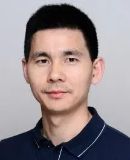
Pengcheng Laboratory
Biography: Jinlong Wei, a researcher of Pengcheng Laboratory and a Marie Curie Fellow. His main research interests include optical fibre communications, photonic switching/signal processing, advanced modulation/coding, intelligent digital signal processing and real-time implementation.
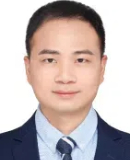
School of Information Engineering, Guangdong University of Technology
Biography: Jianping Li is a special professor of the "Hundred Talents Plan" of Guangdong University of Technology. He has published more than 70 SCI papers, more than 10 international and domestic invited presentations, and more than 10 authorized invention patents. His main research directions are high-speed optical fiber communication and communication signal processing
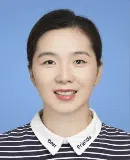
School of Electronic Engineering, Beijing University of Posts and Telecommunications
Biography: Feng Tian, Associate Professor, Doctoral Supervisor, she received the Ph.D degree from the Beijing University of Posts and Telecommunications, Beijing, China, in 2013. Her research interests include high-speed fiber communication systems and digital signal processing.
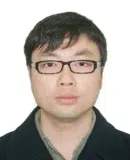
School of Information and Communication Engineering, University of Electronic Science and Technology of China
Biography: Feng Wen received the Ph.D. degree from the University of Electronic Science and Technology of China, in 2013, where he is currently an Associate Professor. He has recently carried out research on all-optical regeneration, amplification, reserve cell computing, and silicon-based photonic functional chips based on the non-linear effect of optical fibers. He is a member of the International Institute of Electrical and Electronic Engineers and the American Optical Society.
OCOIP-OFCMT'24 Invited Speaker
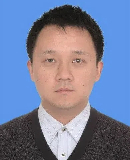
School of Physical Sciences and Engineering, Beijing Jiaotong University
Biography: Zhongwei Tan, Professor of Beijing Jiaotong University, is mainly engaged in the research of new-generation optical fibre communication technology, optical fibre sensing technology, microwave photonics, virtual reality (AR) technology, and optical neural network.
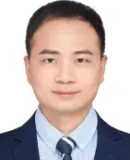
School of Information Engineering, Guangdong University of Technology
Biography: Jianping Li is a special professor of the "Hundred Talents Plan" of Guangdong University of Technology. He has published more than 70 SCI papers, more than 10 international and domestic invited presentations, and more than 10 authorized invention patents. His main research directions are high-speed optical fiber communication and communication signal processing.
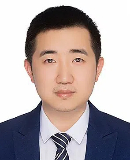
School of Mechanical Engineering and Electronic Information, China University of Geosciences
个人简介: Li Zhong is a professor of the School of Mechanical Engineering and Electronic Information of China University of Geosciences (Wuhan), a doctoral director, a selected candidate of Hubei Provincial Talent Programme, and a selected candidate of Geological University's Hundred Talent Programme. His main research interests include digital signal processing in communication systems, sensing systems and real-time prototype implementation, and the application of machine learning in communication systems. He has presided over the key R&D programme projects of the Ministry of Science and Technology and the National Natural Science Foundation of China.
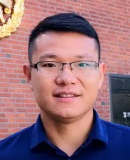
College of Electronics and Information Engineering, Sichuan University
Biography: Ping Zhao, Distinguished Researcher and Doctoral Director, has long been engaged in the research of micro- and nano-photonic devices and systems for communication and information processing, and has a research experience compounded by academia and industry. He has published 26 papers in Science Advances and other international journals and conferences, authorized 10 patents, and chaired 2 research projects.
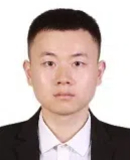
School of Physics, Hefei University of Technology
Biography: Xiaohui Ma, holds a Doctorate in Physics. He graduated from the University of Science and Technology of China in 2019. His primary research focus is on fiber lasers.
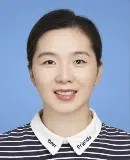
School of Electronic Engineering, Beijing University of Posts and Telecommunications
Biography: Feng Tian, Associate Professor, Doctoral Supervisor, she received the Ph.D degree from the Beijing University of Posts and Telecommunications, Beijing, China, in 2013. Her research interests include high-speed fiber communication systems and digital signal processing.
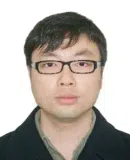
School of Information and Communication Engineering, University of Electronic Science and Technology of China
Biography: Feng Wen received the Ph.D. degree from the University of Electronic Science and Technology of China, in 2013, where he is currently an Associate Professor. He has recently carried out research on all-optical regeneration, amplification, reserve cell computing, and silicon-based photonic functional chips based on the non-linear effect of optical fibers. He is a member of the International Institute of Electrical and Electronic Engineers and the American Optical Society.
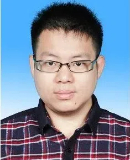
Institute of Microscale Optoelectronics, Shenzhen University
Biography: Lei Ting, Associate Professor of Shenzhen University, Ph. He received his bachelor's and master's degrees from the School of Physics, Nankai University, and his PhD degree from the Department of Electrical and Computer Engineering, Faculty of Engineering, Hong Kong University of Science and Technology. He focuses on the research of micro and nanophotonic devices and their basic applications in optical communication, and is the chairperson of the National Natural Science Foundation of China (NSFC) top-level project and youth project.
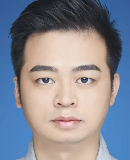
Institute of Microscale Optoelectronics, Shenzhen University
Biography: Shuqing Chen received the Ph.D. degree from Hunan University, Changsha, China, in 2015. In September 2015, he joined the Shenzhen University 2D Materials Optoelectronic Technology International Cooperation Joint Laboratory as an Assistant Professor. He is currently an Associate Professor with the Institute of Microscale Optoelectronics, Shenzhen University, Shenzhen, China. His main research interests include high-speed optical communication technology, metasurface, intelligent information processing, and all-optical information devices.
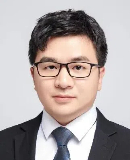
Technical Institute of Physics and Chemistry, CAS
Biography: Bin Liao, Ph.D., Associate Researcher of Institute of Physical and Chemical Technology, Chinese Academy of Sciences. He is also a Young Member of Beijing Bonding Society and Senior Member of Chinese Society for Materials Research. He has been selected as a member of the Chinese Academy of Sciences (CAS) Youth Innovation Promotion Committee and the Beijing Municipal Science and Technology Association (BMSTA) Youth Talent Support Project. His main research interests include marine special functional materials, underwater acoustic stealth metamaterials, fibre-optic buoyancy materials, etc.
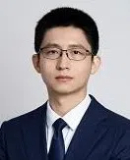
School of Microelectronics, Southern University of Science and Technology
Biography: Dr. Wang Jing, Deputy Director of Shenzhen Automotive Grade Solid-State LiDAR Engineering Research Center, a leading young talent in scientific and technological innovation under the "Guangdong Special Support Plan", a high-level overseas talent under the Shenzhen Peacock Plan, and a "Shenlong Elite" talent of Longgang District. He is a senior member of IEEE, the Chinese Optical Society, and the Chinese Optical Engineering Society, and serves as an expert in talent and project evaluation for more than ten scientific and technological departments. His research interests include: high-speed silicon-based optical modulators, photodetectors, and their large-scale integrated chip design, LiDAR optoelectronic chip design, and complex optoelectronic system design based on silicon-based optical chips.

School of Information Engineering, Wuhan University of Technology
Biography: Jin Shi, Associate Researcher of Wuhan University of Technology. He received his PhD degree from Hunan University. He was a visiting researcher at the Chinese University of Hong Kong, and at the Georgia Institute of Technology. His research interests include visible light communications, integrated sensing and communication (ISAC), optical camera communications.

School of Control Engineering, Northeastern University
Biography: Chengliang Zhu received the B.S., M.S. and Ph.D. degrees from Shizuoka University, Hamamatsu, Japan, in 2010, 2012 and 2019, respectively. From 2012 to 2016, he was a Research and Development Engineer at Makita Corporation, Japan. In 2019, he joined the State Key Laboratory of Synthetical Automation for Process Industries, Northeastern University, China, where his current research interest includes fiber-optic devices, fiber-optic sensors, optical measurement, all-optical signal processing, microwave photonics sensors, helical fiber gratings and fiber optics. He has authored more than 60 refereed journal and conference papers and held several Japanese and Chinese patents. Dr. Zhu is the winner of the Excellent Research Award 2019 of the IEICE Tokai Section. He is a Member of IEEE, IEICE and COS. He is a Member of the Editorial Board of the journal of SENSORS and Frontiers in Sensors.
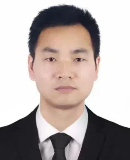
ZTE Corporation
Biography: Zhenhua Feng, received his Ph.D. from Huazhong University of Science and Technology in 2017. He is currently employed at ZTE Corporation as a Senior Engineer in Technical Pre-research, focusing on the pre-research and commercialization of large-capacity optical transmission systems. He has published over 80 papers in journals and conferences, holds more than 10 granted patents, and serves as a reviewer for several SCI-indexed journals.
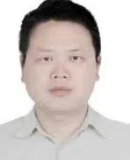
Pengcheng Laboratory
Biography: Liang Junpeng is an assistant researcher at the Pengcheng Laboratory (since July 2023). He obtained his PhD in Physical Electronics from Huazhong University of Science and Technology (2012-2017). He has worked successively at Fujitsu's Beijing R&D Center (2017-2019) and as an algorithm research expert at Wuhan ZTE Software Co., Ltd. (July 2019 - 2023). He has long been dedicated to theoretical and technological research in next-generation high-speed optical fiber communication systems, achieving significant innovations and breakthroughs, including advanced algorithms for high-speed optical signal equalization and recovery, transmission channel and signal monitoring, as well as innovations in high-speed real-time systems. He has published over 40 papers and applied for 4 patents in Europe and the U.S. and 7 patents in China.
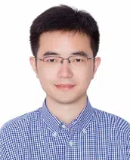
School of Electronic and Information Engineering, Soochow University
Biography: Lin Sun received his Ph.D. degree from Shanghai Jiaotong University in optical fibre and EIE Postdoctoral Fellowship from Hong Kong Polytechnic University.2022 He joined Soochow University in January. His research interests include novel optical fibre and communication technologies for submarine communication.

